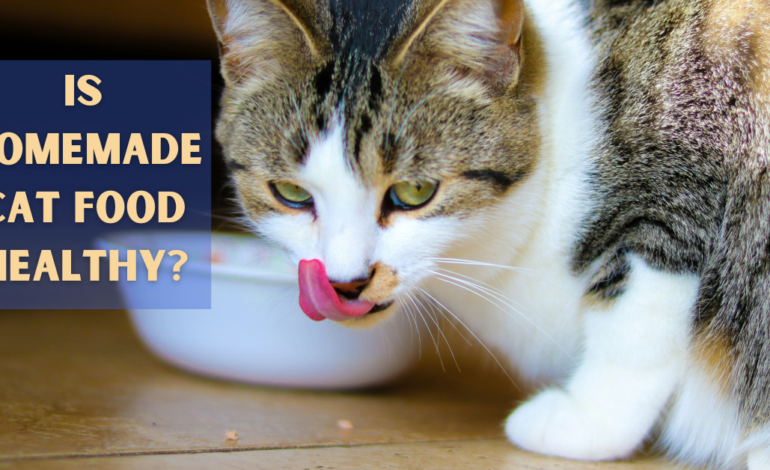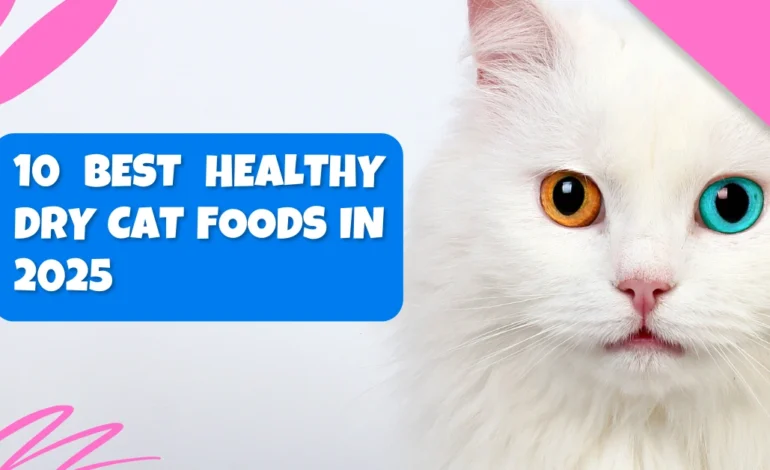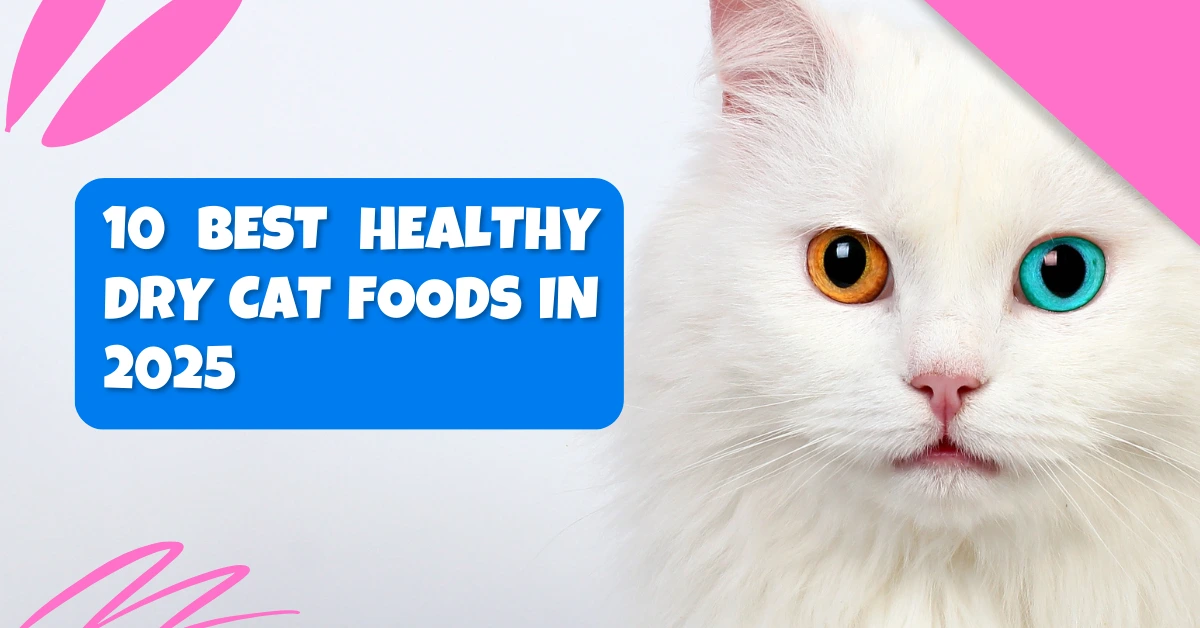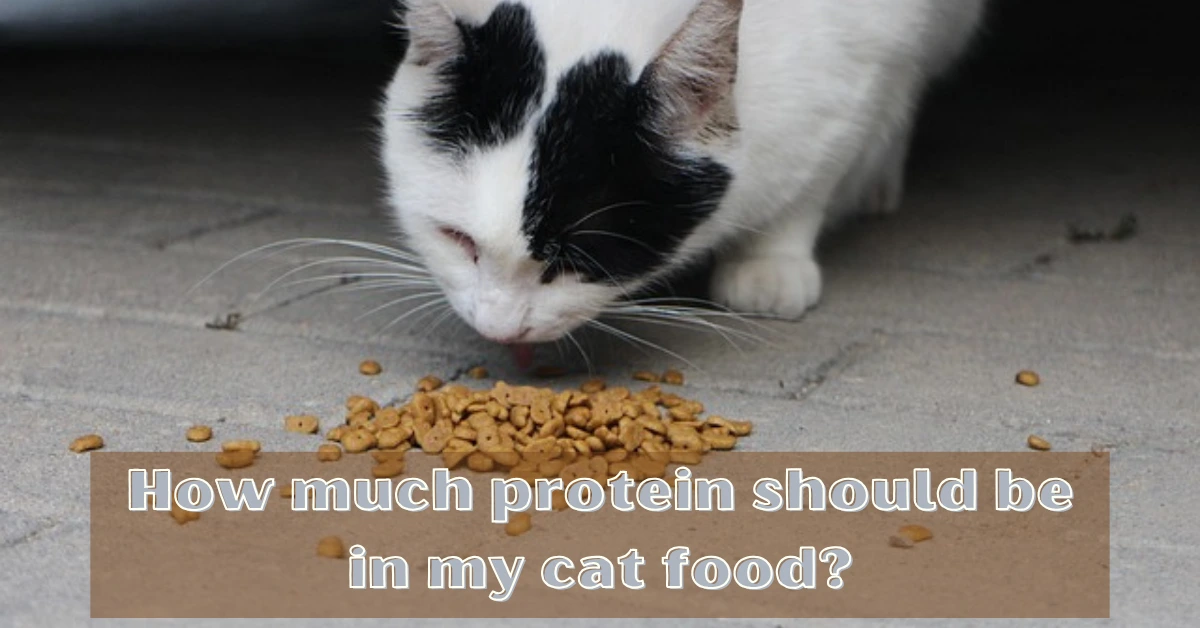Is Homemade Cat Food Healthy?

As a dedicated cat parent, you constantly want the best in health and nutrition for your feline friend. While commercial cat food is the most convenient and widely accepted, plenty of pet parents are turning to homemade cat food to ensure their pets receive superior quality and personalized meals. While cooking fresh, nutritious food that caters to all of a cat’s needs sounds delightful, there are some sobering questions to ask: Is homemade cat food any better than commercial? What are the advantages and disadvantages? In this blog, we shall discuss the merits and demerits of homemade cat food, its positive influence on your cat’s health worthwhile, and guidance to help you determine whether this avenue is the right fit for your pet.
Why Consider Homemade Cat Food?
- Control Over Ingredients: With homemade cat food, you can be certain of what is going into the meals. You guarantee yourself high-quality, fresh ingredients while avoiding harmful preservatives, artificial additives, and fillers.
- Customizable Diets:For cats with food allergies, sensitive stomachs, or other health concerns, homemade meals offer the flexibility to cater to the special needs of their digestion and overall good health.
- Concerns About Commercial Food: Recalls, quality of ingredients, and general lack of trust in mass-produced food have prompted many pet owners to seek the healthier and safer route of homemade meals.
The Benefits of Homemade Cat Food
- High-Quality Ingredients: In other words, by making the Food itself, you are confident to use fresh ingredients that most likely improve health. Put the food out on your cat’s own plate, and know what your pet is required to eat-free of all fillers, by-products, and artificial additives so commonly found in commercial products. It can help improve its nutritional value and boost energy.
- Improved Digestive Health: If your cat is sensitive to any food or suffers from gastrointestinal problems, a home diet can benefit them. Using very digestible proteins and not giving ingredients known to irritate his digestive tract will give him support and, if needed, spit up or waste.
- Personalization for Health Issues: It is through home-cooked meals that you can specially diet your cat if it has any health issues; for example, you could custom-make low-phosphorus meals for their kidneys or even grain-free recipes for cats that have allergies; it’s food crafted specially to support their needs.
The Risks and Challenges of Homemade Cat Food
Is Homemade Cat Food Really Healthy? The Risks to Consider
- Nutritional Imbalance:Primary sources of nutrition for cats can consist of substances the importance of which depends on the well-being of the animal, such as taurine, Vitamin A, and omega fatty acids. It might be unreasonably difficult to create an organically grown diet without professional help, thus augmenting risks for imbalances.
- Nutrient Deficiencies:Some recipes can lack crucial vitamins and minerals when they are poorly constructed, leading to long-term health issues-such as heart disease, weakened immunity, or bone issues.
- Food Safety Concerns: Raw diets have the potential to be contaminated by a range of bacteria such as Salmonella or E. coli, which can cause serious health problems, even death, in both the cat and the human caregiver. Although cooking food destroys a lot of bacteria, improper cooking could destroy essential nutrients.
- Time and Cost Commitment: Homemade cat food preparation requires quite a bit of dedication to find reliable sourcing of top-brand quality ingredients. Added time and cost can make preparation of homemade food impractical for a good number of pet parents.
When Should You Consider Homemade Cat Food?
Homemade food for cats can be a godsend for many cats that are suffering from issues that require special health care, including food allergies, sensitivities, and other medical conditions, like kidney disease and diabetes. A tailored diet allows you to address these specific concerns while ensuring that your cat receives the nutrition it needs. In some conditions, food that helps reduce urinary crystal formation may help those affected by urinary tract issues. Likewise, if your cat has allergies, you can exclude common triggers like certain proteins or grains.
That said, preparing a balanced diet at home requires careful planning and guidance from professionals. Therefore, it could prove beneficial to consult a veterinary nutritionist or veterinarian to avoid nutrient deficiencies or imbalances. They could help devise a plan which will take into account the appropriate proportions of essential nutrients, including taurine, omega fatty acids, and vitamins. Nevertheless, if adequate time, resources, and effort are available to be devoted to it, it would indeed be a fulfilling experience to prepare homemade meals for your cat.
Is Commercial Cat Food a Better Option?
Commercial cat food is another convenient, efficient, and reliable way of providing your cat with a balanced and complete diet. These formulations are in some cases even subjected to rigorous tests to guarantee safety and consistency; thus, a lot of cat owners prefer it, especially when they want choices that meet the standards laid down by the Association of American Feed Control Officials (AAFCO).
Such commercial feeding is also more convenient and less costly when compared to preparing home-cooked meals. The line of commercial food includes a variety of wet, dry, or mixed formulations that are aimed at the full range of preferences, life stages, and specific health needs. For those pet parents who want simplicity without compromising on nutrition, it’s commercial cat food that proves to be practical and reliable.
Commercial vs. Homemade Cat Food
| Benefit | Homemade Cat Food | Commercial Cat Food |
| Control Over Ingredients | Full control over fresh ingredients | Limited control; ingredients are pre-determined |
| Nutritional Balance | Requires careful planning and professional input | Formulated to meet all essential nutritional needs |
| Customization | Can be tailored for specific health conditions | Limited customization options |
| Cost | Can be expensive due to premium ingredients | Generally more affordable |
| Time Investment | Requires significant preparation time | Convenient and ready-to-serve |
| Food Safety | Risk of bacteria in raw diets, handling issues | Commercial food is regulated for safety |
Conclusion
Homemade cat food can provide benefits, including the high-quality ingredients and the personalization of diets especially for those cats with specific health needs. Alongside such benefits, however, come significant risks, including nutritional imbalances or deficiencies and safety issues regarding contaminations. Most will find high-quality commercial cat food a safer, more convenient and reliable choice to guarantee complete and balanced nutrition for their felines.
If you have chosen to cook for your feline friend at home, working with a veterinary nutritionist is a necessity. They help to assure your cat is getting a completely balanced diet to make their life as healthy and happy as possible.
If you are going to prepare homemade cat food, do consult a veterinary nutritionist to ensure that it is balanced and healthy. Check out Meow Care Hub for advice on commercial cat food or homemade diets.
FAQs:
- Is Homemade Cat Food Better for Cats?
- Homemade food is often considered by many as a good option for one’s cat, provided it meets their health needs. However, elaborate planning is necessary to maintain nutritional balance. Always consult a veterinary nutritionist!
- Is it Better to Make Homemade Cat Food?
- While homemade food allows you to control ingredients, without professional help, it can be difficult to make sure all of a cat’s nutritional needs are met. For most, commercially prepared food is the safer, more convenient option.
- Can Homemade Cat Food Be Healthy?
- Yes, homemade food has some health benefits, provided that it is well-balanced, meeting specific dietary needs of the cat. But you must have expert advice to avoid deficiencies or imbalances.
- What Are the Risks of Homemade Cat Food?
- Nutritional imbalances, nutrient deficiencies, and food-borne illnesses can all occur if homemade food is not prepared and stored in a safe way. Some risks associated with raw diets include exposure to disease-causing bacteria.
- Should I Make Homemade Food for My Cat?
- If your cat has special dietary needs or medical conditions, homemade food could be a real option. Commercial food can provide good nutrition, convenience, and peace of mind for many people.
- Is Commercial Cat Food Safer Than Homemade?
- Commercially prepared cat food will always be safer than homemade food, as it is formulated to contain everything needed within its nutritional requirements; it’s also safe because of safety regulations that it has to pass. It’s much more convenient and cheaper to prepare.





